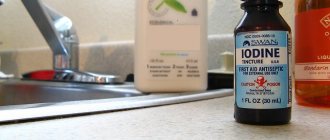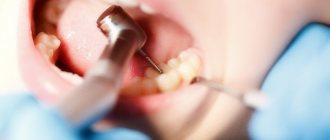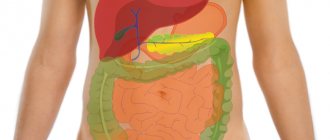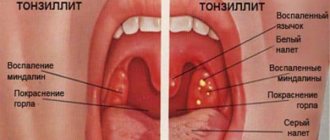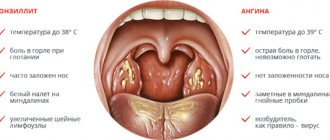Causes and possible diseases
A bad throat may be associated with pathologies of the digestive system or diseases of the ENT organs. In most cases, this symptom occurs against the background of dental diseases. The smell can appear due to improper oral hygiene, caries, chronic gastritis, etc.
Possible pathologies of the ENT organs that contribute to the appearance of an unpleasant odor from the throat:
- Chronic tonsillitis develops with improper treatment and is characterized by periods of exacerbation. When the tonsils become inflamed, bacterial mucus accumulates in the throat, which has an unpleasant odor and causes discomfort. In addition, there is severe pain when swallowing, the passage of purulent clots, increased body temperature, weakness, etc.
- Chronic rhinitis or sinusitis can also cause bad breath. Accumulated purulent mucus that drains down the back of the throat from the nasal cavity can cause an odor.
- Blockages in the tonsils. Plugs can form in the tonsils, which become denser and form a kind of capsule. Grayish-white pustules are observed in the lacunae of the tonsils, which cause an unpleasant odor from the throat.
- Throat cancer. The most dangerous pathology, against which a bad throat may appear, is considered to be throat cancer. It is characterized by the formation and growth of a tumor, which is accompanied by a putrid odor. This pathology can be asymptomatic for a long time, and the odor present may be the only symptom.
If there are no dental or ENT pathologies, but bad breath is still present, then the root of the problem should be sought in diseases of the internal organs.
The symptom is treated by a dentist, otolaryngologist and gastroenterologist.
Symptom danger
White dots on the tonsils indicate an inflammatory process that must be treated to avoid complications. Otherwise, there is a high probability of intoxication of the body.
The immune system is weakened, and against the background of a prolonged inflammatory process, the following symptoms may appear:
- Kidney damage.
- Muscle pain.
- Rheumatism.
- Heart rhythm disturbance.
Also, against the background of tonsillitis, the development of peritonsillar abscess, sepsis, and phlegmon of the neck is possible. These are dangerous pathologies that require urgent treatment.
It is necessary to promptly remove plugs on the tonsils and treat tonsillitis so as not to provoke the development of serious complications.
What to do
If discomfort occurs in the throat or mouth, the first specialist will be a dentist or otolaryngologist. If digestive disorders, heartburn and pain when swallowing prevail, you need to visit a gastroenterologist.
In doubtful cases, the best solution is to visit a therapist. He will conduct an examination and refer you to the right specialist. Treatment is aimed at the cause of the disease. In case of stomatitis or caries, the unpleasant odor will disappear after treatment by a dentist.
Advice! If there is inflammation in the nasopharynx, an abscess or chronic tonsillitis, timely complex therapy should be carried out on the recommendation of an otolaryngologist. This is the only way to avoid the formation of purulent plugs in the depths of the tonsils.
For reflux, proton pump inhibitors are used along with diet. With this disease, it is recommended to go to bed 4 hours after dinner. To prevent bad breath from the throat, you should not eat foul-smelling foods - garlic, onions, radishes.
If you smell acetone in your throat, you should immediately check for high levels of blood glucose and ketone bodies in your urine. To do this, you need to go to the emergency department of a general hospital, where there is an endocrinology department.
Drug treatment
Before starting treatment, it is necessary to determine the cause of bad breath. The doctor selects the treatment regimen taking into account the severity of the pathology.
If the cause of throat odor is plugs in the tonsils, then treatment involves the use of antibacterial agents, the use of physiotherapeutic methods, taking immunostimulants, gargling:
- Treatment usually takes 5-10 days. Antibiotics should be taken from the first day the congestion appears. Before prescribing antibiotics, sensitivity to the components of the drugs is tested. Antibiotics from the cephalosporin group are usually prescribed: Ceftriaxone, Cefin, etc. If drugs of this group are intolerant, Azithromycin, Augmentin, etc. may be prescribed.
- Antiseptic rinses include Furacilin, Angilex, Dioxidine, Chlorhexidine, etc. This procedure should be carried out at least 5 times a day.
- For tonsillitis, it is useful to lubricate the throat with Lugol, Chlorophyllipt, Yox, Iodinol.
- To strengthen the immune system, it is recommended to use Levamisole, Isoprinosine, etc.
If you have chronic rhinitis, snot flows down the back wall of the throat, which also causes a stale smell from the throat. In this case, antiviral drugs are used, which are used to treat influenza, runny nose, and ARVI. If the appearance of rhinitis is associated with a bacteriological infection, then it is advisable to use antibacterial agents.
In addition, it is possible to use antihistamines: Diazolin, Zodak, Suprastin, etc. The doctor prescribes all drugs taking into account the patient’s condition, the severity of symptoms and concomitant pathologies.
Traditional methods of treatment
To eliminate purulent plugs, inhalations are effective. It is recommended to use a nebulizer. Thanks to this device, the active substances penetrate deeply inside. You can perform inhalations using a decoction of sage, oak bark, essential oils of lavender or cedar.
If you don’t have a nebulizer, you can do steam inhalations. Popular steam inhalation recipes for removing traffic jams and getting rid of unpleasant odors:
- Pine buds with essential oils. Take some pine buds, add hot water and add a few drops of essential oil of sage, lavender, eucalyptus, etc. Do inhalations for 1.5 months. You can add honey to the prepared solution for inhalation.
- Lemon juice. Add freshly squeezed lemon juice and a little honey to warm water. Mix the ingredients well and inhale.
- Horseradish juice. Before carrying out the procedure, it must be diluted with water.
Alternative medicine recommends performing irrigation if, due to some circumstances, rinsing is impossible. To perform irrigation, you should take a syringe or syringe without a needle. Irrigation can be done with the help of medicines and herbal decoctions.
Traditional methods of treatment are recommended to be used in combination, which will eliminate the inflammatory process and get rid of unpleasant symptoms in a short time.
What to gargle with?
An effective procedure for eliminating congestion and symptoms of chronic tonsillitis is gargling. Such procedures disinfect the affected area and remove pathogens. In addition, gargling relieves inflammation and clears the tonsils of accumulated pus.
Rinse recipes:
- For rinsing, you can use medicinal solutions (Furacilin, Streptocide). These drugs are diluted in a glass of water.
- You can also use alcohol tincture of calendula, eucalyptus, potassium permanganate, hydrogen peroxide, iodine solution.
- At home, it is useful to gargle with decoctions of chamomile, St. John's wort, sage, mint, yarrow, as well as a soda-salt solution.
- You can also gargle with vodka or beet broth. Vodka does not need to be diluted with water. To prepare a beet-based decoction, you need to chop a large beet along with the peel and add two liters of water. Then simmer over low heat for an hour and strain.
The listed herbs are actively used for various pathologies of the ENT organs and have a pronounced antibacterial effect. While rinsing, care must be taken to ensure that the solution does not enter the respiratory system. To avoid this, you need to tilt your head to the side.
It is recommended to gargle at least 3 times a day until the throat is completely cleared
To prepare a decoction for rinsing, you need to take about 20-30 g of raw material and pour a glass of boiling water. Close the container with a lid and leave for 20-30 minutes. After this, strain and cool slightly. A decoction can be prepared from one plant or several herbs.
Useful video: purulent plugs in the tonsils
To avoid the appearance of throat odor, it is necessary to promptly treat diseases of the ENT organs. This is the only way to prevent the occurrence of plugs in the tonsils and other pathologies that cause bad breath.
Basic recommendations to help avoid bad breath and throat:
- It is necessary to clean the oral cavity regularly. To do this, you can use not only a toothbrush, but also floss.
- Brushing your teeth at least 2 times a day.
- Treat carious teeth and other oral diseases in a timely manner.
- Eat more fruits and vegetables.
- After eating, be sure to rinse your mouth.
- Strengthen immunity.
- Prevent the development of infectious pathologies.
- Avoid hypothermia.
- Follow the principles of a healthy lifestyle.
By following all the doctor’s recommendations and taking preventive measures, you can prevent the occurrence of diseases of the ENT organs and their unpleasant symptoms.
Source: TvojLor.com
Bad smell from the throat: causes and methods of treatment
Bad odor from the throat and mouth very often worries patients, but not everyone attaches great importance to this deviation. Experts call this phenomenon halitosis.
An unpleasant odor can occur not only due to problems with the oral cavity. Many diseases and pathologies are accompanied by this symptom, therefore, to prescribe effective therapy, it is recommended to undergo a thorough examination.
Treatment is prescribed based on the results obtained.
What diseases can cause an unpleasant odor?
The cause of an unpleasant odor in the throat can be associated with both normal physiological phenomena occurring in the body and pathological abnormalities.
Among the diseases presented, there are serious and minor deviations, but in any case they require timely diagnosis and quality treatment.
Experts include the following diseases as the most common provoking factors:
- Lung pathologies, including some forms of pneumonia.
- Liver diseases.
- Pathologies of the nasopharynx and throat.
- Diabetes.
- Oral cavity oncology, malignant formations.
- Diseases of the gum tissue.
- Carious formations.
- Diseases of the pharynx of a bacterial nature.
- HIV.
- Stomach ulcer.
If the patient has been diagnosed with one of the listed diseases, then after it is cured, the bad smell from the throat will disappear.
Halitosis can also be provoked by other reasons that are not associated with diseases of internal organs and systems. These factors include:
- Bad breath in the morning. Saliva is practically not secreted at night, so a favorable environment is created for the development and reproduction of pathogenic bacteria, which provoke unpleasant breath.
- Starvation. The smell will disappear after eating, as saliva will begin to be released intensively.
- Lack of fluid in the body. Provokes a slight secretion of saliva.
- Taking certain medications.
- After drinking alcoholic beverages.
- Eating flavorful foods.
- Smoking.
- Failure to comply with oral hygiene rules.
But you should understand that the listed causes of unpleasant odor from the mouth in most cases are caused by diseases, so you should consult a doctor to identify the pathology.
Diseases of the ENT organs
Various infectious diseases of the ENT organs can provoke an unpleasant odor from the throat. In this case, it is necessary to take into account that halitosis will be temporary and will disappear after treatment. If the patient is constantly bothered by this disorder, it is recommended to be checked for chronic infections of the nasal cavity, pharynx or tonsils.
In such a situation, an ENT specialist pays special attention to the tonsils, since they have a special structure - depressions and lacunae where food debris can accumulate. Therefore, bad throat odor is considered the leading symptom of chronic tonsillitis.
There are cases when even on healthy tonsils one can observe the formation of plugs, which consist of food residues, dead epithelium, bacteria and calcium salts. They are not considered dangerous, but they cause some discomfort to the patient and are accompanied by the same breathing from the mouth.
White lumps from the throat with an unpleasant odor occur for unknown reasons, but therapy is mandatory. The patient is prescribed mechanical removal of formations and preventive measures. In this case, blood and urine tests are required to exclude other diseases of internal organs and systems.
Symptoms
A bad smell from the throat may also be accompanied by additional symptoms, which help in making a diagnosis. During the examination, the specialist pays special attention to these signs.
Symptoms of halitosis:
- Pain in the area of damaged and loose teeth.
- Unpleasant sensations in the throat: soreness, pain.
- Drainage of mucus down the back of the throat.
- Breathing problems.
- Heartburn, belching, nausea and vomiting.
- Thirst and dry mouth.
- Unpleasant taste in the mouth.
- Spitting blood.
If the patient has the listed symptoms along with a bad odor, you should immediately contact a specialist and undergo all tests, undergo a full examination of the body in order to establish the true cause of the disorder. If this is not done, the disease will progress, the general condition will worsen, and halitosis will become more intense.
Forms of halitosis
In modern medicine, there are several forms of halitosis, the treatment of which differs. Therapy is prescribed exclusively by a specialist after a thorough examination. Self-treatment cannot be carried out, as it can lead to negative and irreversible consequences.
Forms of halitosis:
- True. Unpleasant odor from the mouth is felt by those around you. This type of disorder is of two types - physiological and pathological. The first includes the smell resulting from fasting, and the second - diseases of the oral cavity and internal organs.
- Pseudoform. The unpleasant odor is not very pronounced, those around them almost do not feel it, but the patient feels insecure.
- Halitophobia. The patient is constantly in an anxious state due to an imaginary unpleasant odor from the oral cavity. In this case, the patient is recommended to consult a psychiatrist.
Only a specialist can determine the form of the disease.
Diagnostics
If a patient notices white lumps in his throat with an unpleasant odor, then do not postpone a visit to the hospital. The doctor will pay attention to complaints and severe symptoms and analyze the patient’s general condition.
After which it is recommended to assess the severity of odor from the oral cavity. This method is called organoleptic.
For the results to be reliable, 24-48 hours before visiting the doctor, the patient should not take hot, spicy foods or use scented cosmetics.
The examination also pays attention to the oral cavity, tongue, throat, larynx, nose and nasopharynx. The patient is prescribed to undergo an X-ray or computed tomography scan of the paranasal sinuses.
If the dentist or ENT specialist does not detect any abnormalities, the patient is referred for additional consultation to a gastroenterologist or pulmonologist.
A biochemical blood test is required, and attention is paid to the level of kidney and liver enzymes.
Is it necessary to remove tonsils for halitosis?
Many patients ask questions: “How to remove bad odor from the throat? Is it necessary to remove the tonsils? Only a specialist can answer them for sure. If a patient is often diagnosed with tonsillitis, it is recommended to surgically remove the tonsils to get rid of halitosis.
After the operation, the patient’s condition will improve significantly, putrefactive plugs and food debris will no longer accumulate in the throat. Thus, the favorable environment for the proliferation of pathogenic microorganisms will disappear. However, tonsil removal is considered a radical method that is rarely used.
In modern medicine there are other ways to solve this problem. For example, the constant removal of plugs by washing the tonsils. To consolidate the positive result, the patient is advised to use medications that will stimulate the immune system and prevent exacerbation of chronic tonsillitis.
Treatment of halitosis
Treatment of unpleasant odor can be carried out in several ways: medication, folk remedies and rinsing. Drug therapy is based on the provoking factor.
If halitosis was caused by plugs on the tonsils, then the patient is prescribed antibacterial agents, immunostimulants, physiotherapeutic methods and rinsing.
Treatment in this case should last no more than 10 days.
As for antibiotics, it is recommended to take them from the first day after the formation of plugs. The doctor may prescribe Ceftriaxone, Cefin or Augmentin.
How can you gargle to get rid of an unpleasant odor? Antiseptics can be used for this: “Furacilin”, “Angilex”, “Dioxidin”. The procedure is carried out at least 4 times a day. To strengthen the immune system, it is recommended to take Levamisole.
For chronic rhinitis, antiviral drugs are used to help get rid of flu, colds and runny nose. It is also possible to use antihistamines.
Bad smell from the throat without coughing can be eliminated using folk remedies. The patient is recommended to carry out inhalations, rinse the mouth with herbal decoctions - sage, oak bark, lavender essential oils. If it is not possible to rinse, then irrigation can be done. Folk remedies should be used in conjunction with medications.
Preventive actions
Prevention of halitosis consists of full compliance with all specialist recommendations. The patient is advised:
- Maintain oral hygiene.
- Conduct timely treatment of diseases of teeth and gum tissue.
- Treat diseases of the throat, nasal cavity and ears.
- Do not trigger pathologies of the gastrointestinal tract.
- Constantly humidify the air in the room.
- If you have chronic tonsillitis, then regularly wash the tonsils.
- Lead a healthy lifestyle. Avoid drinking alcoholic beverages, smoking tobacco, playing sports, spending time in the fresh air more often, and observing work and rest schedules.
Also, with this disease, it is worth eating properly and balanced. Avoid canned, fried and spicy foods. At the same time, meals should be fractional, in small portions; you should not overeat, especially if diseases of the gastrointestinal tract are diagnosed.
Source: https://FB.ru/article/343028/plohoy-zapah-iz-gorla-prichinyi-i-sposobyi-lecheniya
How to find out the cause of a putrid smell in the throat?
Halitosis has many causes, but a list of them is determined by a specialist. It is recommended to immediately seek help from an ENT specialist; if necessary, he will refer the patient to other specialists.
A common cause of unpleasant odor is dental problems in humans. A similar situation can be provoked by bacteria that have developed in teeth affected by caries.
Other causes of bad breath may include:
- liver diseases;
- stomach diseases - ulcers, gastritis;
- intestinal diseases - dysbiosis;
- problems with the functioning of the pancreas - pancreatitis;
- the presence of worms in the body;
- consumption of alcohol, nicotine;
- respiratory diseases – tuberculosis, pneumonia, bronchitis;
- painful wisdom tooth, especially if pathogenic microbes have entered it;
- long-term use of medications;
- menstruation in women;
- eating at night;
- thyroid diseases;
- formation of tumors in the digestive system or respiratory organs;
- failure in the production of salivary glands;
- eating garlic, onions, cheeses;
- throat infections - tonsillitis, sore throat;
- development of sinusitis.
The detection of pus on the tonsils indicates the development of tonsillitis in a person, and plaque in the oral cavity demonstrates the appearance of various pathologies in the body. Bad breath, accompanied by stomach pain, nausea, and heartburn, indicates serious malfunctions in the functioning of the digestive system.
In all cases, you need to see a doctor for further tests - a smear, a blood test. A smell from the throat along with suddenly appearing tumors, accompanied by weakness and sudden weight loss, often indicate that a person has cancer.
It is worth noting
If we consider tonsillitis and bad breath, then this is not the worst consequence of streptococci “living” in the throat. The greatest danger is the risk of scarlet fever or rheumatism, which can damage the heart. When your tonsils produce pus and you experience bad breath and fever, do not self-medicate, instead consult a doctor immediately. If tonsillitis is caused by bacteria rather than viruses, you will most likely be prescribed an antibiotic.
If you think your bad breath is due to tonsil stones, but you don't have a sore throat, it's likely that the problem is not in your tonsils, but on your tongue or other areas of your mouth where sulfur-producing bacteria thrive. . If the problem continues, contact your dentist or doctor for professional advice.
We suggest you familiarize yourself with how a wisdom tooth is removed if it grows horizontally and rests on an adjacent tooth
Not only adults, but also children deal with the problem of putrid taste in the mouth. Quite often, this unpleasant symptom indicates that some kind of pathological process is taking place in the body, although dental problems can also be the cause of bad breath. In any case, you should definitely consult a specialist about this.
Putrid breath makes a person feel discomfort when communicating with other people, leads to embarrassment and decreased self-esteem. No amount of refreshing agents will help hide it for a long time. In medicine, the problem of bad breath is called halitosis. Its causes and methods of treatment are discussed further in the article.
What causes a putrid smell from the throat?
An unpleasant odor does not in all cases cause serious illness in humans. Rinsing the mouth with various herbal solutions is considered a sufficient measure. Dental treatment and basic hygiene eliminate the problem.
When symptoms are additionally accompanied by the discharge of pus, this is a reason to contact a specialist. Mucus along with a putrid odor indicates the development of an abscess in a person. Such a violation is a common occurrence after insufficient treatment of angina. The patient requires urgent hospitalization, during which the pathology is opened and an intensive course of antibiotic treatment is prescribed.
Ignoring the symptoms, expressed in the form of a putrid odor, often causes a person to develop a number of serious complications:
- rheumatism due to poorly treated tonsillitis;
- spread of infection to the kidneys;
- the occurrence of heart disease due to insufficient treatment of sore throat;
- the appearance of constant muscle pain due to intoxication;
- the development of a cancerous tumor, manifesting itself as a lump in the throat.
Constant bad breath, coupled with severe pain in the stomach, indicates the development of a deadly ulcer in a person. This disease often provokes bleeding in the stomach, causing death in the patient.
Poorly treated tonsillitis often manifests itself as unpleasant sensations in the mouth. Ignoring the phenomenon increases the likelihood of a person developing purulent inflammation, against which there is a high percentage of blood poisoning. Such symptoms lead to deadly phlegmon of the neck. All cases require timely contact with appropriate specialists.
What can an unpleasant smell from the throat lead to, and when do you urgently need to see a doctor?
Bad breath is not a fatal phenomenon and can be easily eliminated by rinsing with herbal solutions or regular chewing gum. However, in some cases it is necessary to contact your treating specialist as soon as possible in order to avoid possible complications.
Thus, an unpleasant odor with the discharge of pus from the throat may indicate the development of an abscess due to complications after a sore throat. In this case, the patient requires emergency medical care, during which the abscess is opened, after which the patient is prescribed a course of antibiotics.
A long-lasting unpleasant odor, which is accompanied by severe pain in the stomach, is one of the symptoms of a peptic ulcer. In this case, you should not postpone a visit to the gastroenterologist, otherwise gastric bleeding may occur, which will also lead to death.
Drug therapy
Any treatment involves an initial identification of the cause of discomfort in the oral cavity. After carrying out diagnostic procedures, the specialist prescribes the necessary program.
To eliminate putrid odor from the throat, the following drugs are used:
- antibiotics;
- antihistamines;
- antiseptics;
- immunostimulating compounds.
Antibiotics are appropriate in cases of tonsil plugs. If bad breath is accompanied by painful sensations in the throat, combination therapy with the use of strong agents and antiseptic drugs is necessary. The duration of such therapy is about 5–10 days, but medications of the cephalosporin and macrolide groups are more often prescribed. Among the antiseptics that have proven themselves:
- Chlorhexidine.
- Furacilin.
- Dioxidine.
These remedies allow you to remove accumulations of pus from the throat.
During the treatment of tonsillitis, it is recommended to lubricate the throat with Chlorophyllipt and Lugol. Therapy for chronic rhinitis involves taking antiviral medications. The bacterial form of the disease requires the active use of antibacterial agents. Sometimes antihistamines are appropriate - Zodak, Suprastin. In any case of getting rid of bad breath complicated by pathology, it is advisable to take immunostimulating agents - Levamisole.
Odor caused by dental problems is eliminated with the antifungal agent Triclosan.
| A drug | Photo | Price |
| Chlorhexidine | From 8 rub. | |
| Furacilin | From 119 rub. | |
| Dioxidine | From 248 rub. | |
| Chlorophyllipt | From 141 rub. | |
| Zodak | From 147 rub. | |
| Levamisole | Check |
Physiotherapeutic procedures are effective for certain diseases, allowing to eliminate unpleasant odor and treat the disease that provoked it.
Eliminating odor at home
Patients can also get rid of bad breath using folk remedies; effective methods are:
- carrying out inhalations with a nebulizer;
- mouth rinse;
- performing steam inhalations;
- irrigating the throat with herbal decoctions.
A nebulizer is a special device for inhalation at home. It is used to inhale a sprayed liquid based on decoctions prepared from oak bark, cedar, sage, and lavender.
In the absence of a device, steam inhalations are performed; the following products are often used as raw materials for them:
- lemon juice and honey;
- pine buds along with essential oils;
- liquid obtained from horseradish.
The most convenient and common method is gargling; the following recipes are effective for gargling:
- tincture of alcohol with the addition of calendula;
- eucalyptus composition;
- chamomile decoction;
- hydrogen peroxide;
- tea from St. John's wort, mint;
- a solution of soda and salt;
- iodine composition;
- a medicinal mixture based on Furacilin;
- beetroot drink.
These products have a pronounced disinfectant effect. They allow you to eliminate painful sensations in the throat, cope with putrid odor and discomfort.
Irrigation is an alternative way to get rid of unpleasant sensations in the throat; manipulation is indicated in cases where the patient is not recommended to rinse the mouth. Irrigation is performed using syringes, syringes without needles. Herbal decoctions and mixtures of medications are chosen as a solution for the procedure.
Source: GorloNosik.ru
Treatment of bad breath
After a comprehensive diagnostic examination, the doctor will be able to find out the cause of bad breath. Then he will prescribe therapy to the patient, which should not only eliminate the symptoms of halitosis, but also affect the cause of its occurrence.
Curing bad breath involves sanitizing foci of infection and treating the underlying ailment. Bed rest and drinking plenty of fluids will ease the patient's condition.
What medications can help?
It will definitely take time to cure bad breath. Many patients do not want to wait and go to the pharmacy for the following medications:
- Hydrogen peroxide helps get rid of germs and relieve various types of inflammation;
- Chlorhexidine fights the proliferation of pathogenic bacteria and increases the effectiveness of antibiotics;
- Triclosan is used in dentistry as a therapeutic and prophylactic agent that fights fungi and harmful microflora;
- antiseptics and decoctions of medicinal herbs - echinacea, chamomile, calendula.
How to get rid of the taste of pus in the mouth using home methods?
In order for treatment to be effective, it must eliminate the primary causes of halitosis. The surest way of treatment is to go to the dentist, who will help get rid of bad breath with the help of medications.
This can be done using traditional methods. They are also effective in combating this problem. Below are some of them:
- periodically eat one leaf of peppermint or fragrant cornflower;
- rinse your mouth with decoctions of sage, lemon balm or lemongrass;
- ginger or celery root will refresh the mouth due to its astringency (celery tincture: finely grate 2 tablespoons of the root and pour 250 ml of vodka, leave for 2 weeks on the refrigerator door, rinse three times a day for two weeks, after diluting with water 1 :10);
- rinse your mouth with vegetable oils with the addition of a small amount of sea or iodized salt (at least 15 minutes);
- Chew coffee beans for 3-4 minutes or eat a quarter spoon of instant coffee;
- rinse your mouth with decoctions of dill, oak bark, chamomile, propolis, yarrow;
- use chewing gum and refreshing sprays.
Throat problems as one of the causes of bad breath
The problem of unpleasant odor can accompany many diseases, including those of the ENT organs. People suffering from diseases of the ENT organs and inflammatory processes in the body often experience the appearance of such a symptom as an unpleasant odor. Possible pathologies of the upper respiratory tract include:
- Chronic tonsillitis causes odor in almost all cases. The reason is the accumulation of food, bacteria, and plugs in the tonsils in children and adults. Based on the condition of the tonsils, pathologies that develop in the oropharynx can be determined.
- With bronchitis, an unpleasant odor is also not uncommon. It usually comes from the throat. Halitosis is especially pronounced if bronchitis is chronic.
- Acute pharyngitis and sore throat are also accompanied by an unpleasant odor. Frequent colds in the absence of proper treatment cause the development of chronic respiratory diseases. Therefore, in case of throat diseases, it is very important to seek help from a specialist in time and undergo the correct therapy.
With chronic tonsillitis, the appearance of purulent clots is common. This disease is characterized by periods of outbreaks and remissions. When the tonsils become inflamed, bacterial mucus accumulates in the larynx, the throat begins to hurt severely, and bad breath appears. Other symptoms of the disease include: severe pain in the throat, especially when swallowing, unpleasant aroma, discomfort, sensation of a foreign object.
Diseases of the nasal cavity - sinusitis and sinusitis - are also accompanied by the accumulation of bacteria that stink. Such causes can cause halitosis as mucus drains down the back of the throat. This can cause a throat infection and a bad odor.
If the plugs in the tonsils smell unpleasant, the cause of this phenomenon is the accumulation of pus in the lacunae of the tonsils, they smell unpleasant. The most dangerous pathology, which is accompanied by intense halitosis, is the oncological process in the oropharynx. It is very important to consult a doctor as early as possible, who will make the correct diagnosis and prescribe competent treatment.
Yellow and white lumps in the throat with an unpleasant odor: causes, symptoms, treatment and prevention
White lumps in the throat are accumulations of calcified substances that form in the cracks of the tonsils. Although they are most often found in the tonsils, they can also appear on the lingual tonsils.
They consist mainly of calcium, but also contain phosphorus and magnesium, ammonia and carbonate. An unhealthy diet causes this disease, but it can also be caused by one of the following pathologies.
Attention! The pathology is manifested by the presence of granular tissue located in the back of the mouth. Over time, these tiny lumps can form smaller, more visible “white polyps,” usually characterized by a foul odor.
Smelly lumps from the throat have a rather irregular round shape, a pasty consistency, and a yellow or whitish color. Outwardly, they resemble clusters of whitish cheese.
White, foul-smelling balls in the tonsils
These are tonsillar plugs or stones; they form in the lacunae - the recesses of the tonsils. Their color, size, shape, and consistency depend on the composition. Most often, white lumps of soft consistency are observed; in some cases, if the composition contains calcium compounds, the lumps can be dense.
White lumps in the lacunae are formed from exfoliated old mucosal cells, bacteria and a small amount of food debris. Sometimes the lumps contain pus, and then they acquire an unpleasant odor and a yellowish tint.
You should know! When white and yellow lumps appear, a person experiences a sensation of the presence of a foreign body in the tonsils, a sore throat and bad breath.
Reasons for appearance
Experts say that the appearance of white lumps in the throat is a consequence of an inflammatory process, for example, chronic tonsillitis. This is an infectious pathology that develops against the background of weak immunity.
Provocateurs can be:
- sore throats that have not been fully treated;
- frequent consumption of cold drinks;
- ARVI and acute respiratory infections;
- smoking;
- alcoholism;
- stress;
- lack of work and rest schedule;
- bad ecology;
- work in hazardous production.
Chronic tonsillitis is caused mainly by streptococci and staphylococci, but sometimes this process can be triggered by:
- chlamydia;
- microplasma;
- viruses;
- Candida fungi.
However, the exact reasons for the appearance of white lumps in the throat are not fully known, since in some people they appear during an exacerbation of tonsillitis, while in others they do not.
According to statistics, more often white lumps appear in the throat of men.
Diagnostics. When should you see a doctor?
In general, any person can periodically form white lumps with an unpleasant odor in the mouth. When this is not accompanied by discomfort or the formation of persistent plaque and these are not lumps of pus, no specific treatment is required.
But still, the appearance of such traffic jams should serve as a reason to contact a specialist and conduct an examination in order to determine the causes of their occurrence. For this purpose the following is carried out:
- UAC and OAM;
- ECG;
- immunogram;
- bacteriological examination of a throat smear.
These examinations are necessary to determine the existing chronic disorders and the presence of possible complications that chronic tonsillitis could cause.
Possible complications
Since the function of the tonsils is a barrier - they protect the lower respiratory tract from the penetration of pathogenic flora into them, a failure in their work can lead to a large number of negative consequences.
In addition, healthy tonsils are directly involved in the synthesis of lymphocytes and in the regulation of immune processes.
When the tonsils are damaged, they begin to work against their own body and damage target organs:
- heart – rhythm disturbances, myocarditis, endocarditis, tonsillocardial syndrome, etc.;
- kidneys – nephritis, pyelonephritis, glomerulonephritis;
- liver – cholecystitis, toxic hepatitis;
- joints;
- genitourinary organs.
Systemic pathologies such as:
- rheumatism;
- psoriasis;
- polyarthritis;
- neurodermatitis and so on.
In some cases, the pathology may be complicated by a peritonsillar abscess, which requires immediate treatment in a hospital setting.
Important! After a sore throat or tonsillitis, it is necessary to donate blood and undergo a cardiogram in a couple of weeks in order to exclude the acquisition of another chronic disease due to tonsillitis.
Causes and symptoms of the disease
To correctly diagnose a disease that causes yellow sputum, the doctor collects an anamnesis from the patient’s words, paying attention to additional symptoms:
- pain, discomfort behind the chest;
- asphyxia;
- increased body temperature;
- cough.
The discharge of mucus from the throat is characterized by the following symptoms:
- soreness and lump in the throat, mucus;
- mucus may accumulate in the throat like snot, which is difficult to cough up;
- painful swallowing, combined with difficult passage of food;
- slight enlargement of lymph nodes.
If these symptoms appear, you should consult an otolaryngologist. The doctor will conduct a visual examination, make a diagnosis and prescribe treatment.
Yellow lumps may be a sign of follicular tonsillitis!
Tonsils are accumulations of lymphoid tissue, which is designed to protect the respiratory tract from bacteria and viruses. The tonsils have lacunae in which dust, dirt, etc. accumulate.
They secrete a sticky secretion and clean themselves. If any pathological process occurs in the body, the lacunae become inflamed and clogged, filling with yellow-white pus. You can remove purulent plugs yourself or consult a doctor.
Yellow lumps in the throat are most often purulent accumulations on the tonsils or the back of the throat. They can occur for a variety of reasons:
- Sinusitis. Sinusitis is accompanied by inflammation of the mucous membrane of the maxillary sinuses and the accumulation of pus in them. However, in advanced forms of sinusitis, when the amount of pus is large enough, it can flow down the back wall of the nasopharynx into the throat, forming lumps. The patient coughs them up and mistakes these symptoms for throat diseases.
- Purulent pharyngitis. With pharyngitis, the mucous membrane of the pharynx becomes inflamed. Purulent pharyngitis is one of the most severe types of this disease. In addition to pus, other unpleasant symptoms appear (sore throat, high fever). If left untreated, the infection spreads throughout the body and affects other organs.
- Purulent laryngitis. With purulent laryngitis, the larynx becomes inflamed, a sore throat appears, a sore throat appears, and the voice becomes rough and hoarse. In the phlegmous (purulent) form of the disease, the infection can affect not only the mucous membrane of the larynx, but also the muscles, cartilage, and periosteum.
- Tonsillitis. Inflammation of the tonsils may be accompanied by the formation of purulent plugs. If left untreated, tonsillitis becomes chronic. Relapses in the form of pus, sore throat, swelling of the tonsils appear when immunity declines.
- Adenoiditis. With this disease, the tissue of the tonsils grows, making nasal breathing difficult. In this case, pus does not always form. Most often, adenoiditis with complications occurs in children of school and preschool age.
The symptoms accompanying the formation of pus in the throat depend on the underlying disease. Pain in the throat, head, nose, sensation of a foreign body in the throat, increased body temperature up to 38-39 degrees, weakness, swelling of the nasal mucosa, copious discharge of mucus from the nose, and cough may occur.
DETAILS: Suprastin relieves throat swelling
Symptomatic manifestations
Chronic tonsillitis is accompanied by the following symptoms:
- Expectoration of white or purulent lumps with a foul odor. White and yellow stinking balls are coughed up not only when coughing and sneezing, but sometimes even during normal conversation. In most cases, they are no larger than a match head, but they can be quite large.
- White plaques can be observed on the surface of the tonsils, but it happens that they are concentrated in the deep layers and remain invisible.
- The patient complains of a constant sore throat, especially in the morning; sometimes this symptom can be so pronounced that the person begins to choke.
- Sore throat and redness prevent a person from swallowing saliva normally, and then food and water.
- Discomfortable sensation of the presence of a foreign body in the tonsil area, many complain of the sensation of a large lump in the throat.
- An unpleasant odor from the oral cavity, most often it is so pronounced that it can be felt by people around.
- Enlarged cervical lymph nodes.
- General malaise, aches.
- Unproductive cough - a person tries to clear his throat, but he does not always succeed.
White lumps are not always cleared up when coughing; it can also be a thick mucous mass. Its jelly-like consistency makes it difficult to cough up completely. However, a person may not be bothered by any other signs other than lumps leaving the throat .
Prohibited “tricks” on how to remove smelly pus plugs from your throat
It is forbidden to squeeze out purulent plugs with your fingers, or pick out white lumps with matches, cotton swabs, or toothpicks! In fact, only formations located close to the “exit” can be removed in this way.
You won’t be able to reach those that lie deep; you can drive them even deeper and you will probably injure the mucous membrane!
After such interventions, pain and inflammation of the mucous membrane are ensured. And complications may occur, including blood poisoning.
Why do you need to get rid of them?
Since the presence of white lumps in the throat negatively affects the state of the human immune system, and they can give impetus to the development of complications and chronic pathologies of target organs, it is imperative to get rid of them.
Source: https://osp-sakhalin.ru/rotovaya-polost/v-gorle-belye-komochki.html
What danger does this symptom pose?
Bad breath from the throat not only brings discomfort to a person, it is also a symptom of possible serious diseases. In the absence of the necessary treatment, against the background of a prolonged course of the infectious process in the body, the following complications may develop:
- pathological processes in the kidneys;
- pain in the joint or muscle system;
- development of rheumatism;
- disturbances in heart rate.
It is very important to carry out timely treatment of diseases, regardless of their stage of development. Otherwise, this causes the development of many dangerous complications that can negatively affect a person’s quality of life.
Medical assistance
Considering the severity of the pathological process, the doctor prescribes a competent treatment regimen. If the cause of halitosis is plugs in the tonsils, this can be treated with antibacterial drugs that should be taken after meals. Such drugs are designed to stop the development of the infectious and inflammatory process and suppress existing inflammation.
Additionally, other procedures are prescribed: physiotherapy, taking immunomodulators, rinsing the mouth with antiseptic solutions (miramistin, furatsilin). Typically, the duration of therapeutic measures is at least a week. Antibacterial drugs are prescribed from the first day of disease development.
You will also need to treat the surface of the throat; this can be done with the help of drugs Lugol, Chlorophyllipt, Iodinol. To strengthen the immune system, drugs such as Levamisole and Groprinosin are used. In the presence of chronic rhinitis, a remedy for the common cold and tablets that have an antiviral effect are prescribed. Antiviral drugs are also used to treat other diseases.
Additionally, to relieve swelling in the oropharynx and nasopharynx, the doctor prescribes antihistamines - Suprastin, Loratadine, Eden. Any therapy is prescribed taking into account the severity of the pathology, the advanced stage of the disease, the severity of symptoms, and the general condition of the sick person.
Traditional methods of treatment
For problems with the mouth, if the throat cavity hurts or smells unpleasant, you can additionally use unconventional methods of treatment. But only as part of complex treatment of diseases and only after preliminary consultation with the attending physician. To eliminate purulent plugs, it is recommended to use a nebulizer. Inhalations can be carried out using decoctions based on medicinal plants (sage, oak bark, lavender or cedar essential oil). If you don’t have a nebulizer, you can use steam baths.
To get rid of halitosis, the following remedies are recommended:
- a decoction based on pine buds and essential oils;
- lemon juice and honey;
- horseradish juice diluted with water.
You can rinse your throat with the above products or irrigate it using a syringe without a needle or a small syringe.
Effective gargles
What to do if inflammation or bad breath appears? To quickly get rid of the problem, you need to gargle when you have bad breath, this can significantly help in treatment. Rinse your mouth, the result will be the elimination of pathogenic microorganisms, the severity of the inflammatory process, cleansing of accumulated mucus and purulent plugs. To carry out the rinsing procedure, it is recommended to use the following solutions:
- Medicines – Furacilin, Streptocide.
- Alcohol tincture of calendula, eucalyptus.
- Hydrogen peroxide.
- Iodine.
- Decoctions of medicinal plants - chamomile, St. John's wort, sage, mint, yarrow, soda-saline solution, beet decoction.
From caries to cancer. What diseases does bad breath indicate?
If toothpaste and brushing don't help you, go to the doctor
Bad breath (its scientific name is “halitosis”) accompanies not only heavy smokers and lovers of onions and garlic. It can be a symptom of a number of dangerous diseases, not only related to the digestive system. Experienced doctors say that by the patient’s breathing they can determine what kind of disease he is suffering from.
Oral diseases
Very often, an unpleasant odor is associated with diseases of the oral cavity. Caries, inflamed gums and mucous membranes, periodontal disease, plaque and tartar - all these problems lead to bad breath. The main cause of these diseases is insufficient oral hygiene.
Doctors advise brushing your teeth not only in the morning and evening, but also after every meal. And not immediately after lunch or dinner, but 30 minutes later.
By this time, the tooth enamel, slightly softened by acids from chewed food, will return to normal and will no longer be damaged by the brush.
If it is not possible to clean your mouth after every meal with a brush and paste, then you can chew gum. But it is important that it is without sugar, as it will only worsen the situation.
It is necessary to brush not only the teeth, but also the inner surface of the cheeks and tongue. It is the plaque that accumulates on them that often provokes halitosis.
If you recently visited a dentist who tidied up your teeth and gums, got rid of plaque and tartar, and declared that your mouth was completely sanitized, then your bad breath is most likely caused by other health problems.
pixabay.com
Reference: Sanitation is a set of therapeutic measures to improve the health of the oral cavity and prevent most dental diseases.
Causes
Various anaerobic bacteria that populate the oral cavity and part of the digestive tract are the most common cause of complaints about the odor emanating from the oral cavity. In addition to bacterial infection, the following reasons may contribute to the development of pathology:
- consumption of some specific foods, such as onions, garlic, etc.;
- poor oral hygiene, which leaves food residues that begin to actively decompose;
- dental pathologies, such as heavy plaque, periodontal disease, caries;
- various diseases of the ENT system;
- diseases of the bronchopulmonary system;
- gastrointestinal diseases;
- oncology of various localizations;
- some systemic diseases, such as diabetes.
It is very important to remember that there is no diagnosis that sounds like “unpleasant odor from the throat.” Odor is always only a symptom, and in order to effectively eliminate it, it is necessary to detect and eliminate the cause of the disease.
Smell of acetone
As already mentioned, the type of pathology can be determined by the nature of the symptom. This is especially true when the cough is accompanied by the smell of acetone. Most often this indicates a disruption in the absorption of carbohydrates. This situation occurs in diabetics with a lack of insulin.
People with diabetes may experience an acetone odor
We invite you to familiarize yourself with Blood bubble on the tongue - causes of appearance and methods of treatment. Blood ball in the mouth: what is it and what to do with it
Diabetes mellitus can be suspected based on the following complaints:
- frequent urge to empty the bladder;
- severe dry mouth;
- weakness.
All this indicates an excess of sugar, which can lead to very sad consequences. It is important to emphasize that when the smell of acetone comes from the mouth, the same is observed from the skin and even from urine.
At the same time, it should be noted that if you have an unpleasant smell reminiscent of acetone when coughing, you do not need to immediately panic, suspecting diabetes. Perhaps the cause of this condition was diet or simple starvation.
Kidney pathologies may cause an ammonia smell.
Important: if a child smells of acetone, you should first rule out malnutrition.
Associated symptoms
Various diseases are often accompanied not only by an unpleasant odor coming from the throat, but also by other symptoms. Please pay attention to the following complaints:
- pain in the teeth (it is especially important to pay attention to it when localized in the area of a damaged or actively loose tooth);
- various unpleasant sensations such as pain, soreness;
- sensation as if mucus was flowing down the back wall;
- various problems with the respiratory system;
- complaints of heartburn, nausea and vomiting, belching;
- the appearance of any taste emanating from the oral cavity for no apparent reason;
- expectoration of saliva streaked with blood.
Since the complaint of an unpleasant odor from the larynx is too vague a symptom, the doctor will have to pay attention to various accompanying signs to make a diagnosis. This will help to associate the appearance of a symptom with a specific disease, and begin its treatment correctly.
Symptoms of the constant presence of mucus in the throat (larynx)
When mucus accumulates in the larynx, coughing and swallowing helps to eliminate its stagnation.
With increased sputum production, a person experiences the following symptoms:
- sore throat;
- a lump that does not disappear when swallowed;
- pain symptoms when eating solid food, swallowing;
- stuffy nose;
- sneezing;
- swollen lymph nodes;
- temperature;
- aches throughout the body;
- unpleasant sourish odor from the mouth.
Diagnostics
Only a doctor can reliably determine the cause of an unpleasant odor from the throat. First of all, the patient is examined to identify changes visible to the eye. When examining the oral cavity, a physician may notice the appearance of redness of the mucous membrane, the formation of small nodules filled with liquid or a semi-solid mass.
The examination also suggests the presence of problems with the oral cavity, gastrointestinal tract and lungs.
If in doubt, the doctor will select appropriate laboratory diagnostic methods. Usually a general urine and blood test and a biochemical blood test are performed. If the patient complains of sputum production, then its properties and characteristics must be examined.
In some cases, it is necessary to clarify the diagnosis using instrumental techniques. They use ultrasound, radiography, CT, MRI and other techniques as indicated.
Treatment
It is necessary to begin any treatment only after the cause of the symptom has been reliably established. Medicines should be selected by a doctor depending on the characteristics of the patient and the disease itself.
If the cause is a bacterial infection, then the patient may be prescribed antibacterial drugs in the form of tablets that act systemically, or rinses that have a local effect. Rinsing with antiseptics such as Chlorhexidine, Furacilin, etc. will also be useful.
If it is determined that the problem is a virus, then preference is given to antiviral drugs, since antibiotics in this case are pointless. Treatment of systemic pathologies is also carried out if it is possible to understand that the smell from the mouth and throat is a consequence, for example, of a stomach ulcer.
How to get rid of odor
To eliminate the taste in the mouth during coughing, treatment should be carried out after a complete examination. It will be aimed at eliminating the symptoms and causes of the disease. Thus, so that the patient is not bothered by the presence of an unpleasant taste in the mouth, a diagnosis should be determined and treatment prescribed:
- For diseases of the ENT organs, antibacterial therapy and complete elimination of the source of inflammation are used.
- In case of pathologies of the teeth and gums, a consultation with a dentist and sanitation with filling of the teeth and treatment of the mucous membrane are prescribed.
- Diseases of the digestive system require a special course of treatment.
- The presence of acetone odor requires determination of glucose levels and selection of effective therapy. As a rule, in this case the patient is admitted to a hospital.
- The smell of ammonia requires a full diagnosis of the kidney condition, after which treatment will be prescribed.
To eliminate an unpleasant odor, you need to visit a doctor and determine the root cause.
In each case, the set of drugs will be different. It is important to consult a doctor as soon as possible if you suspect diabetes, if you have purulent sputum, or if there is a significant deterioration in your general condition.
